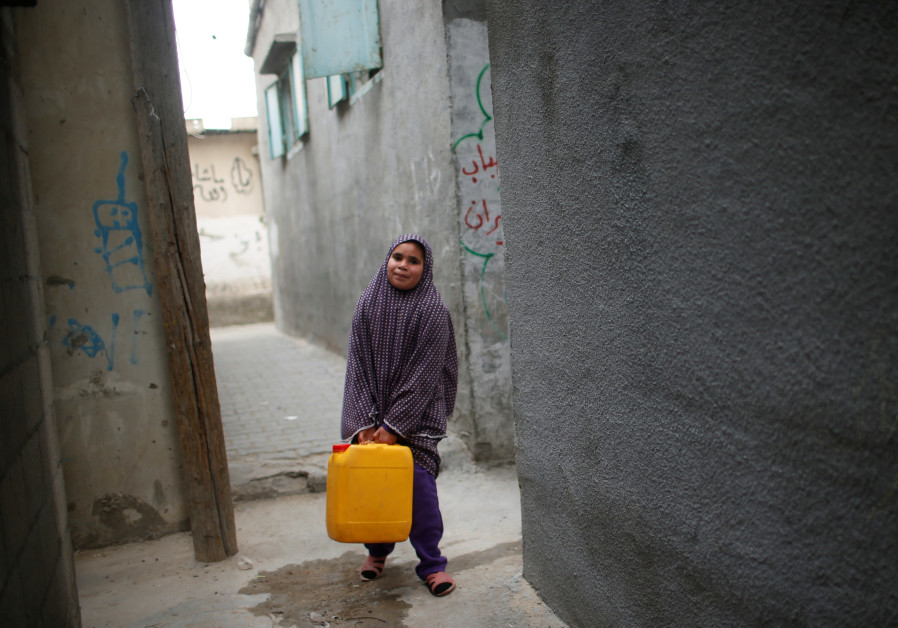A Gaza fuel crisis could shut down essential services, U.N. envoy warns

A Palestinian girl carries a potable water container after filling it from a public tap in Jabaliya refugee camp in the northern Gaza Strip. (photo credit: MOHAMMED SALEM/REUTERS)
The UN funding crisis for Gaza could force 250 health, water and sanitation facilities to shut down for lack of fuel, UN Resident Coordinator and Humanitarian Coordinator Jamie McGoldrick warned on Monday.
“Life-saving services in the Gaza Strip rely heavily on donor-funded emergency fuel,” McGoldrick said. “We have now run out of funds and are delivering the final supplies in the next few days. Without funds to enable ongoing deliveries, service providers will be forced to suspend, or heavily reduce, operations from early September, with potentially grave consequences.”
Those facilities had been on the verge of shutting down as Israel had halted the flow of gas and fuel into Gaza through the Kerem Shalom crossing from August 1 to August 14 to protest Hamas violence.
Gaza subsists on only four or five hours of electricity a day, so essential services rely heavily on back-up generators which run on fuel.
Even now that Israel has opened the Kerem Shalom crossing, the United Nations lacks the $4.5 million necessary to purchase the fuel necessary to keep critical services in Gaza afloat.
Among those in danger are 4,800 Palestinians in intensive care units. Medical services for the rest of the population will be reduced or stopped altogether.
Sewage treatment plants will not be able to operate, and there is a danger that raw sewage could flow into the Mediterranean.
(function(w,d,s,i){w.ldAdInit=w.ldAdInit||[];w.ldAdInit.push({slot:10834723912266086,size:[0, 0],id:”ld-9628-9059″});if(!d.getElementById(i)){var j=d.createElement(s),p=d.getElementsByTagName(s)[0];j.async=true;j.src=”//cdn2.lockerdomecdn.com/_js/ajs.js”;j.id=i;p.parentNode.insertBefore(j,p);}})(window,document,”script”,”ld-ajs”);
Lack of water and sanitation facilities could also contribute to the outbreak of disease in densely-populated urban areas.
“If donors intervene quickly, we can prevent a serious deterioration, such as a disease outbreak or other public health concern,” said McGoldrick. “But we need funding immediately to avoid the collapse of critical life-saving services.”
His warning followed a number of other pleas the UN has made this summer for funding, particularly in light of the US decision to drastically reduce its funding to the United Nations Relief and Works Agency for Palestine Refugees.
On Friday, the UN Office for the Coordination of Humanitarian Affairs warned that donor funding for humanitarian projects was at an all-time low.
“So far, only 25 per cent of the nearly $540 million needed this year has been received,” the office reported. The bulk of those target funds, some $406 million, are earmarked for Gaza.






Comments are closed.